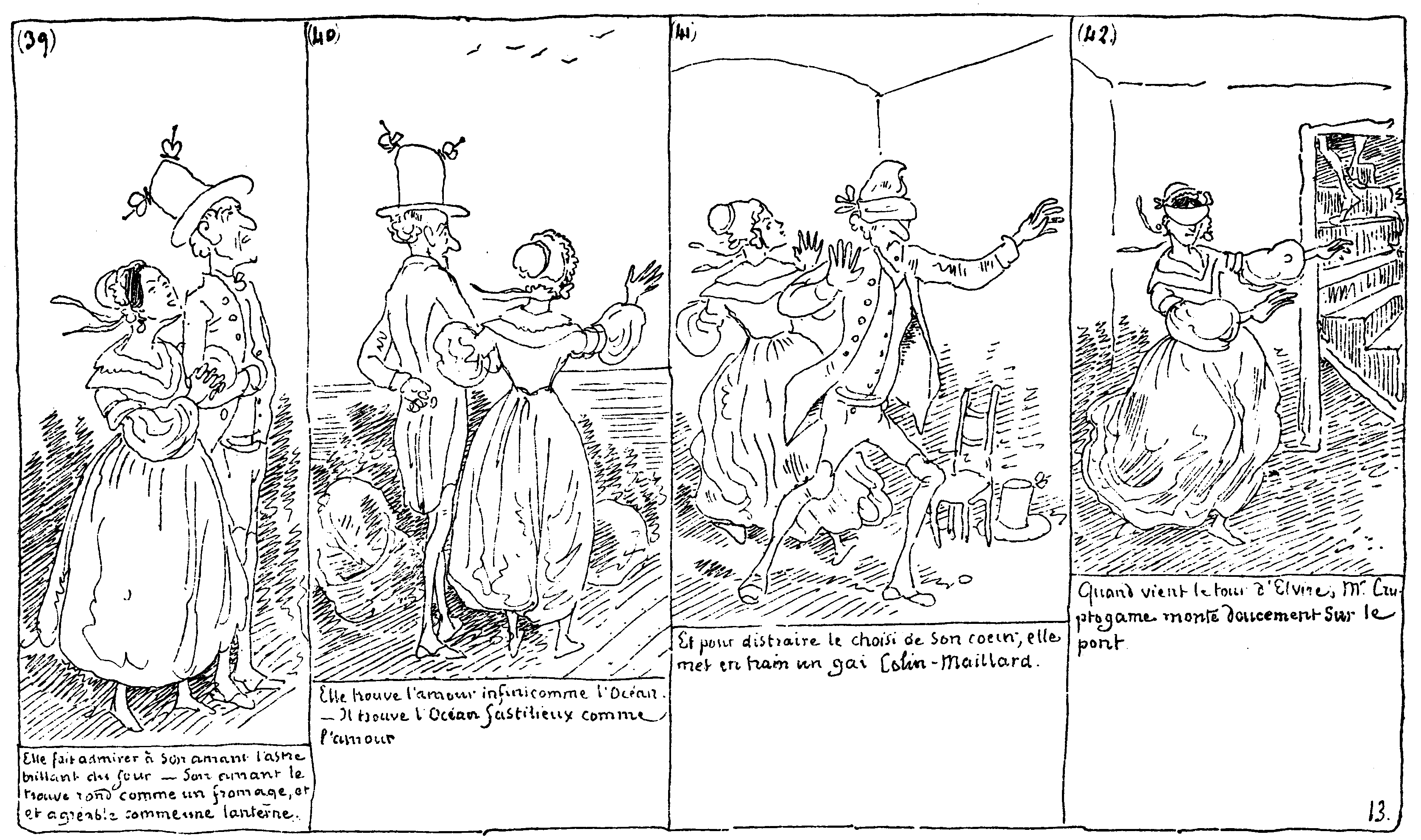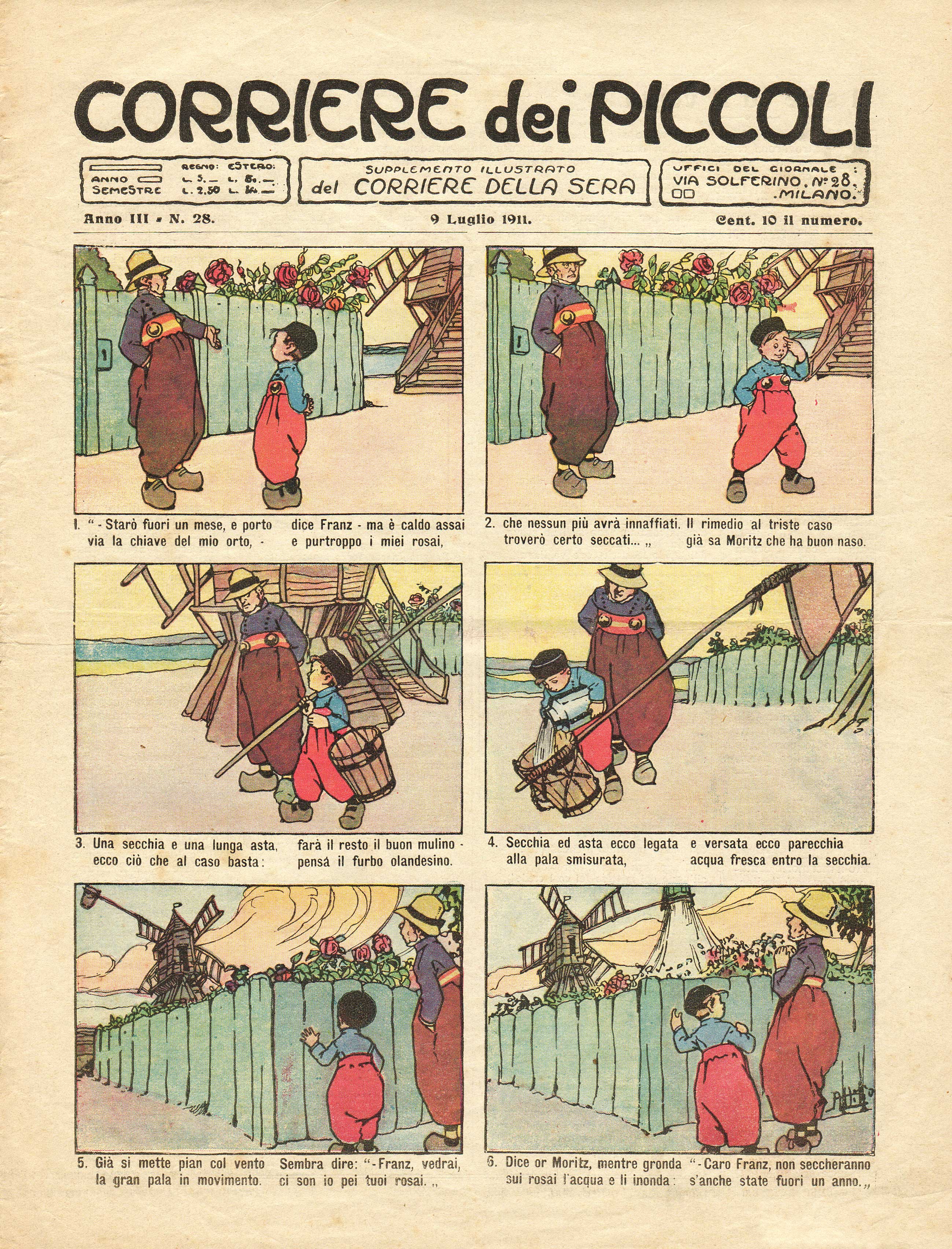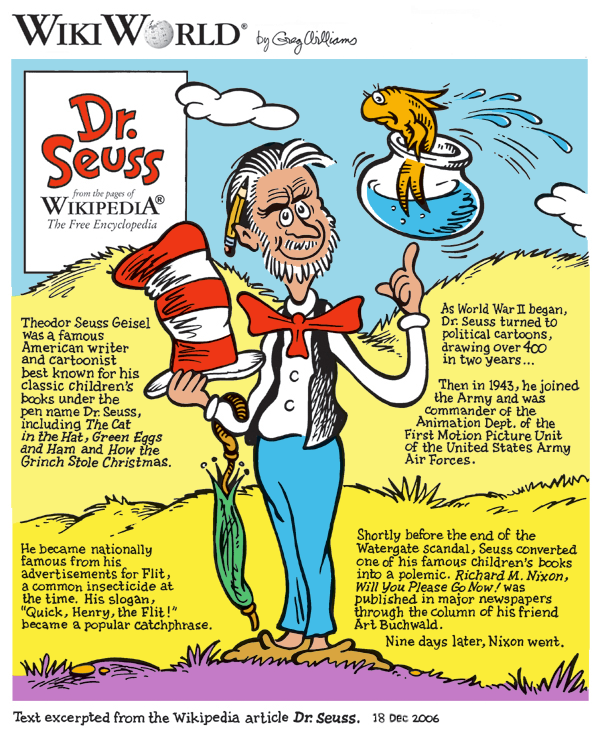|
Italino
''Italino'' was an Italian comic strip series created by Antonio Rubino. ''Italino'' was published by the children magazine ''Il Corriere dei Piccoli'' from 1915, on the eve of the entry of Italy in World War, to 1919. It depicts the patriotic and humorous stories of Italino, an interventionist young Trentino farmer who enjoys doing spites to his Austro-Hungarian Austria-Hungary, often referred to as the Austro-Hungarian Empire,, the Dual Monarchy, or Austria, was a constitutional monarchy and great power in Central Europe between 1867 and 1918. It was formed with the Austro-Hungarian Compromise of ... rival Kartoffel Otto.B.P. Boschesi, ''Manuale dei fumetti'', Mondadori, 1976, pp.27-28. References Italian comic strips Italian comics characters 1915 comics debuts 1919 comics endings Humor comics Text comics Fictional farmers Fictional Italian people {{Italy-comics-stub ... [...More Info...] [...Related Items...] OR: [Wikipedia] [Google] [Baidu] |
Text Comics
Text comics or a text comic is a form of comics where the stories are told in Cartoon caption, captions below the images and without the use of speech balloons. It is the oldest form of comics and was especially dominant in European comics from the 19th century until the 1950s, after which it gradually lost popularity in favor of comics with speech balloons. Definition A text comic is published as a series of illustrations that can be read as a continuous story. However, within the illustrations themselves no text is used: no speech balloons, no onomatopoeias, no written indications to explain where the action takes place or how much time has passed. In order to understand what is happening in the drawings the reader has to read the captions below each image, where the story is written out in the same style as a novel. Much like other comics text comics were pre-published in newspapers and weekly comics magazines as a continuous story, told in daily or weekly episodes. When pu ... [...More Info...] [...Related Items...] OR: [Wikipedia] [Google] [Baidu] |
Antonio Rubino
Antonio Rubino (15 May 1880 – 1 July 1964) was an Italian illustrator, cartoonist, animation director, screenwriter, playwright, author and poet. He was the most prolific comics illustrator in Italy before World War I. Biography Born Antonio Augusto Rubino in Sanremo, Rubino graduated in law. Then, as an autodidact, he turned his focus to drawing, debuting as the illustrator of Alberto Colantuoni's book ''L'Albatros''. After collaborating with several newspapers and magazines, in 1908 he started a collaboration as illustrator and cartoonist with the children's magazine ''Corriere dei Piccoli'', for which he created numerous successful comic characters, notably Quadratino and Italino.B.P. Boschesi, ''Manuale dei fumetti'', Mondadori, 19763. . In the 1920s and 1930s Rubino was also chief-editor and sometimes founder of several children's publications, such as ''Il Balilla'', ''Topolino'', ''Mondo Bambino'', and ''Mondo Fanciullo''. He also directed several animated films ... [...More Info...] [...Related Items...] OR: [Wikipedia] [Google] [Baidu] |
Il Corriere Dei Piccoli
The ''Corriere dei Piccoli'' (Italian for "Courier of the Little Ones"), later nicknamed ''Corrierino'' ("Little Courier"), was a weekly magazine for children published in Italy from 1908 to 1995. It was the first Italian periodical to make a regular feature of publishing comic strips. Publication history ''Corriere dei Piccoli'' was established in 1908. The first issue (24 pages, 80,000 copies) was published on 27 December 1908, with Silvio Spaventa Filippi as editor-in-chief. It was founded by Luigi Albertini. The magazine was formally a supplement for children of ''Corriere della Sera'', but it was also sold separately for 0.10 lira Its upmarket rival ''Il giornalino della Domenica'', founded in 1906, sold for two and a half times the price. At its acme, the magazine sold 700,000 copies. By 1970 the magazine started having financial difficulties due to rising costs and competition by other magazines and comics books. Feeling that the quaint name was partly to blame, on 1 ... [...More Info...] [...Related Items...] OR: [Wikipedia] [Google] [Baidu] |
Interventionism (politics)
Interventionism refers to a political practice of intervention, particularly to the practice of governments to interfere in political affairs of other countries, staging military or trade interventions. Economic interventionism refers to a different practice of intervention, one of economic policy at home. Military intervention as the main issue, has been defined in the context of international relations as "the deployment of military personnel across recognized boundaries for the purpose of determining the political authority structure in the target state." Interventions may just be focused on altering political authority structures, but also be conducted for humanitarian purposes, as well as debt collection. Interventionism has played a major role in the foreign policies of Western powers, particularly during and after the Victorian era. The New Imperialism era saw numerous interventions by Western nations in the Global South, including the Banana Wars. Modern intervention ... [...More Info...] [...Related Items...] OR: [Wikipedia] [Google] [Baidu] |
Trentino
Trentino ( lld, Trentin), officially the Autonomous Province of Trento, is an autonomous province of Italy, in the country's far north. The Trentino and South Tyrol constitute the region of Trentino-Alto Adige/Südtirol, an autonomous region under the constitution. The province is composed of 166 ''comuni'' (municipalities). Its capital is the city of Trento (Trent). The province covers an area of more than , with a total population of 541,098 in 2019. Trentino is renowned for its mountains, such as the Dolomites, which are part of the Alps. Etymology The province is generally known as "Trentino". The name derives from Trento, the capital city of the province. Originally, the term was used by the local population only to refer to the city and its immediate surroundings. Under former Austrian rule, which began in the 19th century (previously, Trentino was governed by the local bishop), the common German name for the region was ''Welschtirol'' () or ''Welschsüdtirol'' (‘It ... [...More Info...] [...Related Items...] OR: [Wikipedia] [Google] [Baidu] |
Austro-Hungarian Empire
Austria-Hungary, often referred to as the Austro-Hungarian Empire,, the Dual Monarchy, or Austria, was a constitutional monarchy and great power in Central Europe between 1867 and 1918. It was formed with the Austro-Hungarian Compromise of 1867 in the aftermath of the Austro-Prussian War and was dissolved shortly after its defeat in the First World War. Austria-Hungary was ruled by the House of Habsburg and constituted the last phase in the constitutional evolution of the Habsburg monarchy. It was a multinational state and one of Europe's major powers at the time. Austria-Hungary was geographically the second-largest country in Europe after the Russian Empire, at and the third-most populous (after Russia and the German Empire). The Empire built up the fourth-largest machine building industry in the world, after the United States, Germany and the United Kingdom. Austria-Hungary also became the world's third-largest manufacturer and exporter of electric home appliances, el ... [...More Info...] [...Related Items...] OR: [Wikipedia] [Google] [Baidu] |
Italian Comic Strips
Italian(s) may refer to: * Anything of, from, or related to the people of Italy over the centuries ** Italians, an ethnic group or simply a citizen of the Italian Republic or Italian Kingdom ** Italian language, a Romance language *** Regional Italian, regional variants of the Italian language ** Languages of Italy, languages and dialects spoken in Italy ** Italian culture, cultural features of Italy ** Italian cuisine, traditional foods ** Folklore of Italy, the folklore and urban legends of Italy ** Mythology of Italy, traditional religion and beliefs Other uses * Italian dressing, a vinaigrette-type salad dressing or marinade * Italian or Italian-A, alternative names for the Ping-Pong virus, an extinct computer virus See also * * * Italia (other) * Italic (other) * Italo (other) * The Italian (other) * Italian people (other) Italian people may refer to: * in terms of ethnicity: all ethnic Italians, in and outside of Italy * i ... [...More Info...] [...Related Items...] OR: [Wikipedia] [Google] [Baidu] |
Italian Comics Characters
Italian(s) may refer to: * Anything of, from, or related to the people of Italy over the centuries ** Italians, an ethnic group or simply a citizen of the Italian Republic or Italian Kingdom ** Italian language, a Romance language *** Regional Italian, regional variants of the Italian language ** Languages of Italy, languages and dialects spoken in Italy ** Italian culture, cultural features of Italy ** Italian cuisine, traditional foods ** Folklore of Italy, the folklore and urban legends of Italy ** Mythology of Italy, traditional religion and beliefs Other uses * Italian dressing, a vinaigrette-type salad dressing or marinade * Italian or Italian-A, alternative names for the Ping-Pong virus, an extinct computer virus See also * * * Italia (other) * Italic (other) * Italo (other) * The Italian (other) * Italian people (other) Italian people may refer to: * in terms of ethnicity: all ethnic Italians, in and outside of Italy * i ... [...More Info...] [...Related Items...] OR: [Wikipedia] [Google] [Baidu] |
1915 Comics Debuts
Events Below, the events of World War I have the "WWI" prefix. January *January – British physicist Sir Joseph Larmor publishes his observations on "The Influence of Local Atmospheric Cooling on Astronomical Refraction". *January 1 ** WWI: British Royal Navy battleship HMS Formidable (1898), HMS ''Formidable'' is sunk off Lyme Regis, Dorset, England, by an Imperial German Navy U-boat, with the loss of 547 crew. **Battle of Broken Hill: A train ambush near Broken Hill, New South Wales, Australia, is carried out by two men (claiming to be in support of the Ottoman Empire) who are killed, together with 4 civilians. * January 5 – Joseph E. Carberry sets an altitude record of , carrying Capt. Benjamin Delahauf Foulois as a passenger, in a fixed-wing aircraft. * January 12 ** The United States House of Representatives rejects a proposal to give women the right to vote. ** ''A Fool There Was (1915 film), A Fool There Was'' premières in the United States, starring Theda Bar ... [...More Info...] [...Related Items...] OR: [Wikipedia] [Google] [Baidu] |
1919 Comics Endings
Events January * January 1 ** The Czechoslovak Legions occupy much of the self-proclaimed "free city" of Pressburg (now Bratislava), enforcing its incorporation into the new republic of Czechoslovakia. ** HMY ''Iolaire'' sinks off the coast of the Hebrides; 201 people, mostly servicemen returning home to Lewis and Harris, are killed. * January 2– 22 – Russian Civil War: The Red Army's Caspian-Caucasian Front begins the Northern Caucasus Operation against the White Army, but fails to make progress. * January 3 – The Faisal–Weizmann Agreement is signed by Emir Faisal (representing the Arab Kingdom of Hejaz) and Zionist leader Chaim Weizmann, for Arab–Jewish cooperation in the development of a Jewish homeland in Palestine, and an Arab nation in a large part of the Middle East. * January 5 – In Germany: ** Spartacist uprising in Berlin: The Marxist Spartacus League, with the newly formed Communist Party of Germany and the Independent Social De ... [...More Info...] [...Related Items...] OR: [Wikipedia] [Google] [Baidu] |
Humor Comics
A cartoon is a type of visual art that is typically drawn, frequently animated, in an unrealistic or semi-realistic style. The specific meaning has evolved over time, but the modern usage usually refers to either: an image or series of images intended for satire, caricature, or humor; or a motion picture that relies on a sequence of illustrations for its animation. Someone who creates cartoons in the first sense is called a ''cartoonist'', and in the second sense they are usually called an ''animator''. The concept originated in the Middle Ages, and first described a preparatory drawing for a piece of art, such as a painting, fresco, tapestry, or stained glass window. In the 19th century, beginning in ''Punch'' magazine in 1843, cartoon came to refer – ironically at first – to humorous artworks in magazines and newspapers. Then it also was used for political cartoons and comic strips. When the medium developed, in the early 20th century, it began to refer to animated films ... [...More Info...] [...Related Items...] OR: [Wikipedia] [Google] [Baidu] |
Fictional Farmers
Fiction is any creative work, chiefly any narrative work, portraying individuals, events, or places that are imaginary, or in ways that are imaginary. Fictional portrayals are thus inconsistent with history, fact, or plausibility. In a traditional narrow sense, "fiction" refers to written narratives in prose often referring specifically to novels, novellas, and short stories. More broadly, however, fiction encompasses imaginary narratives expressed in any medium, including not just writings but also live theatrical performances, films, television programs, radio dramas, comics, role-playing games, and video games. Definition Typically, the fictionality of a work is publicly marketed and so the audience expects the work to deviate in some ways from the real world rather than presenting, for instance, only factually accurate portrayals or characters who are actual people. Because fiction is generally understood to not fully adhere to the real world, the themes and context of ... [...More Info...] [...Related Items...] OR: [Wikipedia] [Google] [Baidu] |






